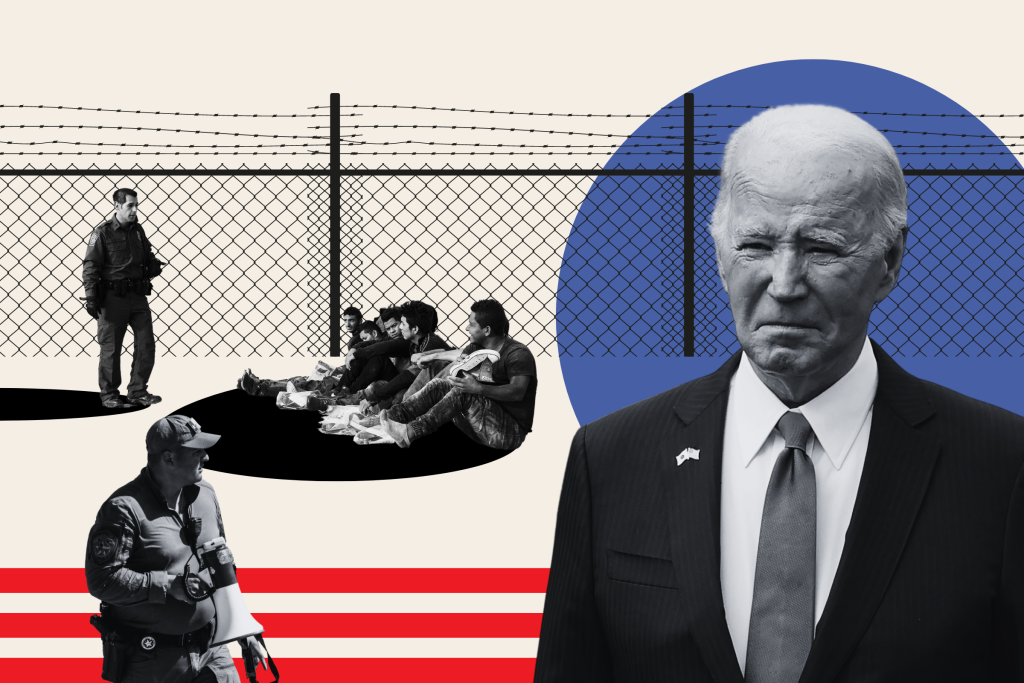A recent poll conducted exclusively for Newsweek found that just 20 percent of American voters believe the United States has control over its borders, a significant decrease from 34 percent in August 2023. This decline in confidence in border control poses a challenge for the Biden administration, as tightening border security has been a key focus for presumptive Republican presidential nominee Donald Trump. The issue of irregular immigration has been a prominent political topic in recent years, with nearly 10 million migrant encounters recorded between October 2019 and January 2024. Texas Governor Greg Abbott reported that over 500,000 suspected undocumented migrants had been detained in his state since 2021, emphasizing the ongoing challenges with illegal crossings.
The survey of 1,500 eligible voters conducted on April 11, 2024, revealed that 63 percent of respondents believe the United States does not have control over its borders, compared to just 20 percent who think it does. This sentiment was shared among individuals from various political affiliations, including 53 percent of Joe Biden voters and a plurality of all age groups surveyed, indicating widespread concern over border security. Additionally, more than half of the respondents expressed dissatisfaction with the government’s current approach towards illegal immigration, highlighting the need for effective policies to address this issue.
The rejection of a $118 billion bipartisan Senate bill aimed at tightening illegal immigration in February further emphasized the challenges faced by lawmakers in addressing the nation’s immigration challenges comprehensively. Thomas Gift, who heads the Center on U.S. Politics at University College London, noted that polling data suggests illegal immigration will be a critical issue in the upcoming presidential election. Recent polls have shown a significant increase in the number of respondents listing immigration as America’s most important problem, surpassing other issues such as the economy, abortion, and international conflicts. This growing concern underscores the importance of developing effective immigration policies to address the current challenges.
The issue of illegal immigration has intensified tensions between the Biden administration and Texas Governor Greg Abbott, with the Supreme Court ruling in January that federal agents could remove razor wire placed along the Texas-Mexico border on Abbott’s orders. In response, Abbott characterized the situation as an “invasion” and invoked his state’s constitutional authority to defend itself. The governor received support from 25 other Republican governors, and former President Donald Trump called for the deployment of National Guard troops to Texas from GOP-controlled states to bolster border control efforts. These actions reflect the contentious nature of the issue and the differing approaches to addressing illegal immigration.
Overall, the poll results highlight the growing concerns among American voters regarding border security and illegal immigration, with a majority expressing doubt about the government’s ability to control the borders. The need for comprehensive and effective policies to address these challenges has become increasingly apparent, as the issue of illegal immigration is likely to play a significant role in the upcoming presidential election. The divergent opinions and actions taken by political leaders underscore the complexity of the issue and the challenges involved in finding common ground and developing sustainable solutions. As the debate continues, policymakers will need to consider the diverse perspectives and interests involved in order to address the issue of illegal immigration effectively.













